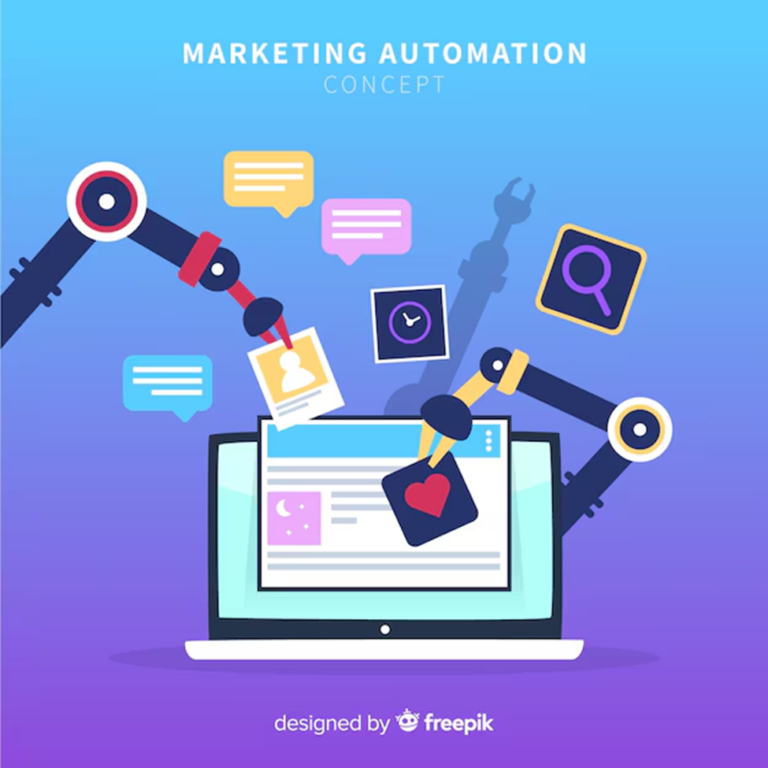AI-Powered Project Management Tools
Discover how AI-powered project management tools can enhance team collaboration, automate task assignments, and improve project efficiency. Learn how AI is transforming project management for businesses in 2025.
Introduction
Project management is crucial to any business, ensuring tasks are completed on time, within budget, and with the desired quality. Over the years, project management tools have evolved from simple task trackers to complex systems that integrate with various business functions. With the advancement of artificial intelligence (AI), these tools have become even more powerful, offering intelligent insights, automation, and predictive capabilities to streamline workflows.
AI-powered project management tools represent a significant leap in project management. These tools leverage machine learning algorithms, natural language processing, and data analytics to provide real-time recommendations, automate administrative tasks, and offer insights that help project managers make informed decisions. As businesses face increasing complexity and competition, incorporating AI into project management systems has become essential for maintaining efficiency and driving success.
This article explores the impact of AI-powered project management tools, how they function, and their benefits for teams and businesses. Whether you’re a project manager looking to optimize team performance or a business owner interested in enhancing operational efficiency, understanding how AI can transform project management is key to staying ahead in the market.
The Role of AI in Project Management

Traditionally, project management involved a lot of manual effort, from assigning tasks to tracking progress and generating reports. However, with AI-powered project management tools, many of these tasks are automated, which frees up valuable time for project managers to focus on higher-level responsibilities. AI helps predict potential risks, manage schedules, and improve resource allocation, ensuring that every aspect of the project is managed efficiently.
AI also allows for the integration of advanced data analytics, which means that project managers can gain insights into past project performances, team productivity, and project health. These insights can then be used to forecast future outcomes, making planning and adjusting project strategies easier. By identifying patterns in data, AI systems can predict bottlenecks, delays, and even areas where a team might need additional resources, allowing managers to take proactive measures.
Additionally, AI-powered tools enable better communication and collaboration within teams. With AI chatbots and virtual assistants, team members can quickly access information, resolve issues, and even get recommendations on how to prioritize tasks. These tools automate repetitive tasks and improve decision-making by providing data-driven insights.
Key Features of AI-Powered Project Management Tools
AI-powered project management tools come with a range of features designed to enhance the efficiency and effectiveness of project teams. These tools are designed for managing tasks and support collaboration, risk management, and performance tracking. Some of the key features include:
Task Automation: AI tools automate various repetitive tasks, such as assigning work, updating project statuses, and generating progress reports. This reduces project managers’ workload and ensures that tasks are completed on time without constant oversight.
Resource Optimization: AI helps project managers allocate resources more efficiently by analyzing team members’ skills, availability, and past performance. This ensures that the right people are assigned to the right tasks, improving the overall quality and speed of work.
Predictive Analytics: By analyzing data from past projects, AI tools can predict potential delays, bottlenecks, and risks that may arise during a project. These predictive insights help project managers take preventative measures, minimizing the impact of unforeseen issues.
Intelligent Scheduling: AI-powered tools can automatically schedule tasks based on team availability, priority levels, and project deadlines. They can also adjust schedules in real-time if something changes, such as team member unavailability or new tasks being added.
Collaboration Tools: AI can enhance team collaboration by integrating with messaging platforms, allowing team members to communicate seamlessly. Additionally, AI virtual assistants can provide reminders, answer common questions, and help manage workflows while maintaining effective communication.
Data-Driven Reporting: One of the most valuable features of AI-powered project management tools is their ability to provide real-time data and analytics. Project managers can generate detailed reports on project performance, resource utilization, and other critical metrics, allowing them to make informed decisions and adjust plans as needed.
Benefits of Using AI for Project Management

Incorporating AI into project management processes has several significant benefits. These benefits can profoundly impact productivity, efficiency, and overall project success.
Increased Efficiency: One of the most immediate benefits of AI-powered project management tools is the increase in efficiency. Tasks that previously took a lot of manual effort, such as scheduling, resource allocation, and task assignment, can now be automated. This allows project managers to focus more on strategic decision-making and less on administrative tasks.
Better Risk Management: Predictive analytics powered by AI can help project managers identify potential risks early in the process. Whether it’s a delay in delivery or an issue with resource allocation, AI can analyze project data and provide insights into potential pitfalls, allowing managers to mitigate risks before they escalate.
Enhanced Collaboration: AI-powered tools facilitate better communication and collaboration among team members. With features such as instant messaging, automated reminders, and virtual assistants, team members are always in the loop, and project managers can monitor progress in real-time. This improves collaboration and ensures that everyone is working towards the same goal.
Improved Decision-Making: AI tools analyze data from multiple sources, providing project managers with actionable insights and predictions. This data-driven approach allows project managers to make more informed decisions, leading to better project outcomes. Additionally, the ability to analyze past project data helps managers refine their strategies and improve future project planning.
Time and Cost Savings: AI-powered project management tools help businesses save time and money by automating repetitive tasks and optimizing resources. Automated scheduling, task management, and reporting reduce the need for manual intervention, allowing projects to be completed faster and at a lower cost.
Top AI-Powered Project Management Tools in 2024

Several AI-powered project management tools are available, each offering unique features designed to cater to different business needs. Here are some of the best tools in 2024:
Monday.com: Monday.com is a highly customizable project management tool that integrates AI to automate repetitive tasks, optimize resource allocation, and provide predictive analytics. Its intuitive interface and powerful features make it an excellent choice for teams of all sizes looking to improve their workflow and efficiency.
Trello with Butler: Trello, a popular project management platform, integrates AI with its Butler feature. This allows users to automate repetitive tasks, such as moving cards, assigning tasks, and creating checklists. It’s a great choice for teams looking for a simple yet effective project management solution.
Asana: Asana is a widely used project management tool that leverages AI to automate task assignments, set deadlines, and track progress. Its AI-powered features help optimize team performance by providing actionable insights and suggestions for improving project workflows.
ClickUp: ClickUp is a comprehensive project management tool that integrates AI for task automation, resource allocation, and scheduling. It offers AI-driven reporting tools that provide real-time insights into project performance and help managers make data-driven decisions.
Wrike: Wrike is another powerful AI-driven project management platform that helps teams optimize their workflows. With its predictive analytics, automated reporting, and real-time collaboration tools, Wrike is designed to help businesses of all sizes improve project delivery times and team productivity.
How to Choose the Right AI Project Management Tool

Choosing the right AI-powered project management tool depends on several factors, including your team’s size, the complexity of your projects, and the specific features you need. Consider the following when selecting a tool:
- Ease of Use: Ensure that the tool is user-friendly and can be easily adopted by your team. A tool with a steep learning curve may hinder productivity rather than enhance it.
- Features and Integrations: Look for a tool that offers features that align with your project management needs. Additionally, ensure that it integrates with the other tools you use for seamless workflow management.
- Scalability: Choose a tool that can grow with your business. As your team and projects expand, the tool should be able to handle larger workloads without compromising performance.
- Support and Training: Ensure that the tool comes with adequate support, training materials, and resources to help your team maximize its features.
- Cost: Finally, consider your budget. While AI-powered tools can save time and money in the long run, they often come with a subscription fee. Choose a tool that provides value for money while meeting your business’s needs.
The Future of AI in Project Management
The future of AI in project management looks incredibly promising. As AI technology continues to advance, we can expect project management tools to become even more intelligent, offering more advanced predictive capabilities, enhanced automation, and better integration with other business systems. The ongoing development of AI in project management will further empower project managers to drive efficiencies, reduce risks, and optimize workflows.
As AI continues to evolve, it will likely play a central role in reshaping the project management landscape, helping teams deliver projects faster, with greater accuracy, and with better collaboration than ever before.
Conclusion
AI-powered project management tools are revolutionizing the way businesses manage projects, providing enhanced efficiency, better risk management, and improved decision-making. By automating repetitive tasks, optimizing resources, and offering valuable insights, AI tools are helping businesses save time and money while improving overall project performance.
As businesses continue to embrace AI technology, the tools available for project management will only become more advanced and accessible. To learn more about how AI can transform your project management processes, be sure to check out our pillar post.







